Directory
- Share
Tyler Goodspeed
- Alumni
- United States
- 2008 MPhil Economic and Social History
- Emmanuel College
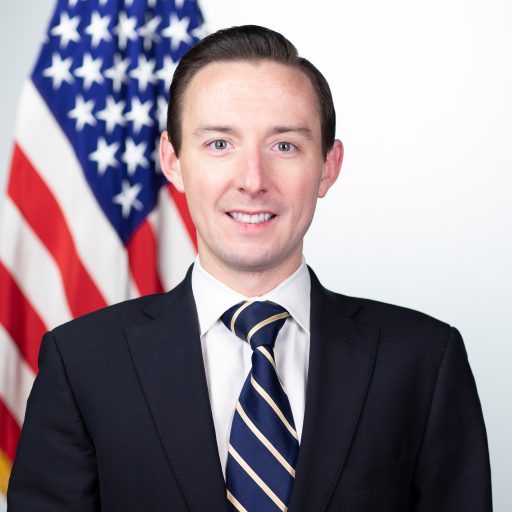
Tyler Goodspeed
- Alumni
- United States
- 2008 MPhil Economic and Social History
- Emmanuel College
Guillem Gordo Bach
- Scholar
- Spain
- 2023 PhD Economics
- Queens' College
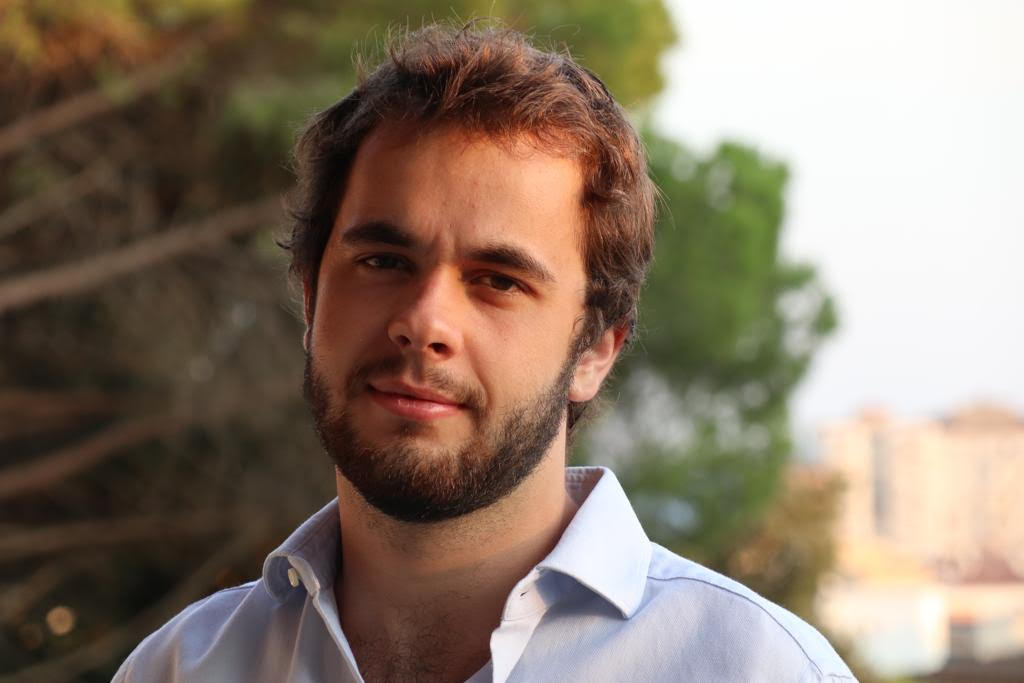
Guillem Gordo Bach
- Scholar
- Spain
- 2023 PhD Economics
- Queens' College
Anna Gordon
- Alumni
- Australia
- 2008 LLM Law
- Jesus College
Anna Gordon
- Alumni
- Australia
- 2008 LLM Law
- Jesus College
I will be specialising in international law and human rights as part of my LLM at Cambridge. My particular interest in international law and human rights stems from studies in these areas of law on exchange at the University of Vienna as part of my undergraduate degree and internships with the Red Cross (IFRC) in Geneva. More recently I have been working as the Legal Research Officer at the High Court of Australia and tutoring at the Australian National University.
Hassan Goreja
- Alumni
- Pakistan
- 2013 PhD Economics
- Hughes Hall
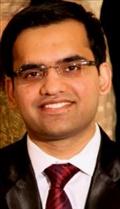
Hassan Goreja
- Alumni
- Pakistan
- 2013 PhD Economics
- Hughes Hall
I am an economist with 7 years of experience in the field. I have worked in the UK, Pakistan and several countries in the Middle East. I am currently based in Canada.
Srijit Goswami
- Alumni
- India
- 2007 PhD Physics
- St Edmund's College
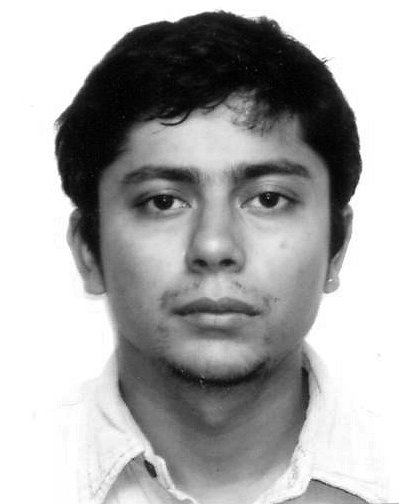
Srijit Goswami
- Alumni
- India
- 2007 PhD Physics
- St Edmund's College
I will be working with the Semiconductor Physics (SP) group at Cavendish Laboratory. My research focuses on nanostructures and their quantum behaviour at low temperatures. I’m particularly interested in electrical transport through these structures, and their interaction with electromagnetic radiation. Throughout my involvement with cutting-edge research, my primary goal has been to simply become a better scientist everyday. Cambridge, being a world-class institution, provides a stimulating environment to do precisely this. The faculty and facilities in the SP group will enable me to carry out sound physics research, and build a strong foundation for a succcessful scientific career. In the future I would like to continue working with low-dimensional systems, which are a storehouse of a variety of intriguing quantum phenomena. I hope to make a significant contribution to this area.
Igor Gotlibovych
- Alumni
- Germany
- 2010 PhD Physics
- Churchill College
Igor Gotlibovych
- Alumni
- Germany
- 2010 PhD Physics
- Churchill College
In 2010 I started the first year of my PhD in the Atomic, Mesoscopic and Optical Physics group in the Cavendish Laboratory. My research will concentrate on studying novel aspects of Bose-Einstein Condensates (BECs) - dense atomic clouds at extremely cold temperatures unmatched anywhere in the universe. While creating BECs is a significant experimental challenge, they exhibit many properties found in other complex systems, e.g. superfluidity. Studying BECs ultimately leads to better understanding of superfluids, superconductors and collective phenomena in general.
Julia Gottschalk
- Alumni
- Germany
- 2011 PhD Earth Sciences
- Homerton College
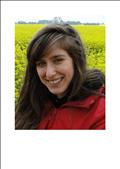
Julia Gottschalk
- Alumni
- Germany
- 2011 PhD Earth Sciences
- Homerton College
I finished my undergraduate studies in Marine Geology at the University of Bremen - a leading institution for marine geosciences. During my studies I had the opportunity to participate in several multinational research projects and sea-going expeditions all over the world dedicated to study past changes of our climate and the ocean. I became passionate about climate research also in the face of its socioeconomic and political importance. I am currently enrolled in the first year of my PhD studies at the Department of Earth Sciences focusing on the global signature of past abrupt climate change recorded in marine sediments. Particular emphasis will be put on changes in biological productivity and the ocean circulation in the South Atlantic Ocean to explain the millennial-scale variability of carbon dioxide in the atmosphere. The study is supported by analyzing further climate archives as ice cores and cave formations as well as numerical climate simulations.
Paul Goulart
- Alumni
- United States
- 2003 PhD Engineering
- Churchill College

Paul Goulart
- Alumni
- United States
- 2003 PhD Engineering
- Churchill College
Apolline Gouzi
- Scholar
- France
- 2023 PhD Music
- Wolfson College
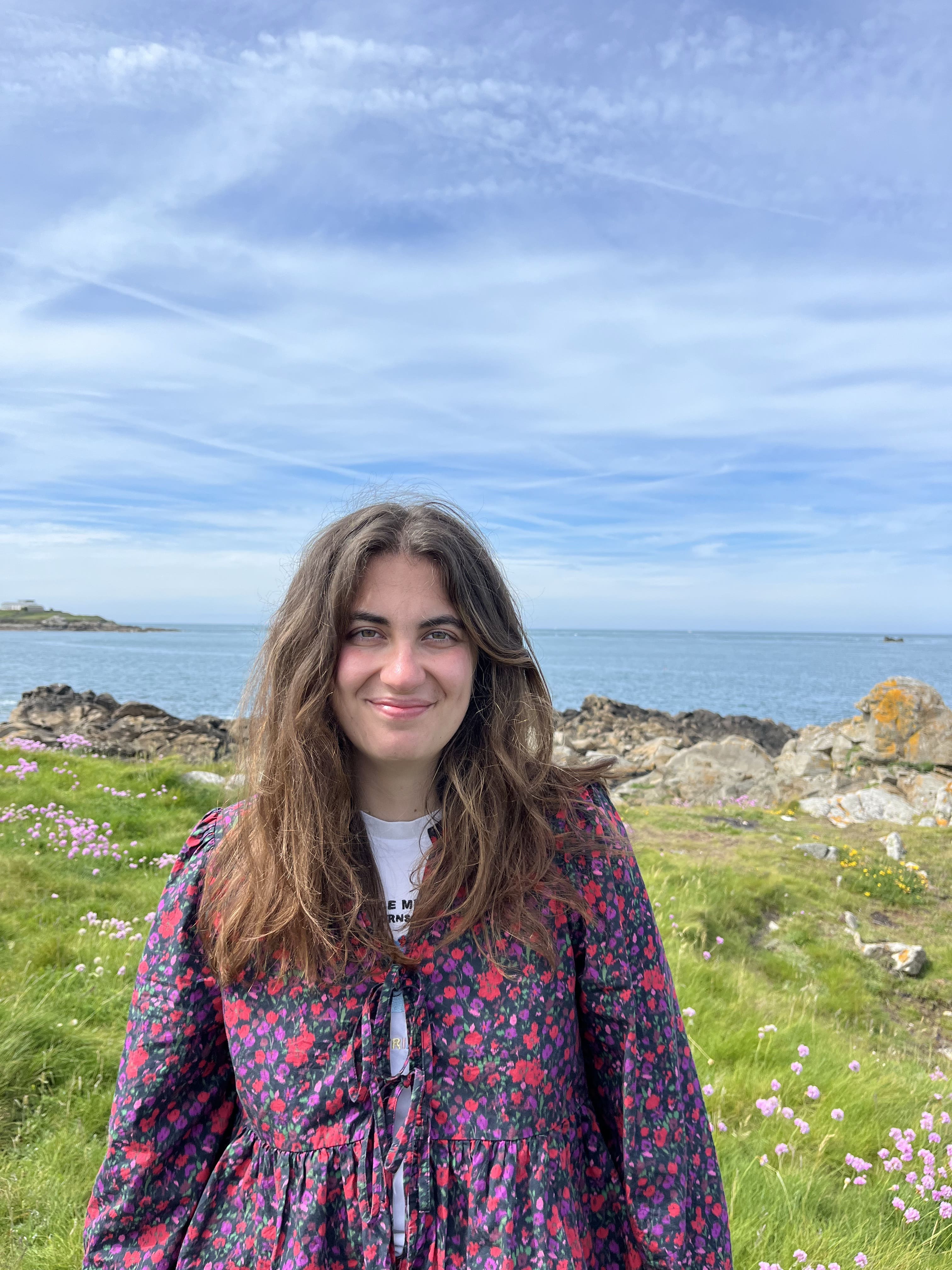
Apolline Gouzi
- Scholar
- France
- 2023 PhD Music
- Wolfson College
I am a young researcher in history of music trained at University and Conservatoire in Paris. My research interests are in contemporary history and include music festivals, cultural transfers between France and England and women musicians. In my PhD project ('Cultural Reconstruction? Postwar Music Festivals in the French Regions (1945-1959)'), I investigate how classical music festivals acted as shelters for stage music in the context of a collapse of the traditional opera system and how a “local” focus was used to promote the idea that some towns had been protected from change in the aftermath of the Second World War, through several case studies (Festival d’Aix-en-Provence, Mai musical de Bordeaux, Festival de Lyon-Fourvière, Festival de Vichy, Festival de Strasbourg).
Previous Education
Ecole Normale Supérieure Musique 2023
Conservatoire de Paris CNSMDP Histoire de la musique 2022
EHESS Musique 2020
Links
https://cambridge.academia.edu/ApollineGouzi
https://cv.hal.science/apolline-gouzi
Philip Graff
- Alumni
- United States
- 2008 PhD Physics
- Queens' College
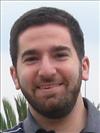
Philip Graff
- Alumni
- United States
- 2008 PhD Physics
- Queens' College
At Cambridge, my PhD in Physics focuses on Einstein's theory of general relativity and its implications. I am studying the application of Bayesian inference for the detection of gravitational waves. I am also looking into theoretical predictions for primordial gravitational waves as remnants of the Big Bang. This work has potential for opening a new window onto our Universe and providing direct observations of the earliest moments in our Universe's history.
Previous Education
University of Maryland (Baltimore County) BS Physics, BS Mathematics 2008
Jessica Grahn
- Alumni
- United States
- 2001 PhD Cognition Science
- Wolfson College

Jessica Grahn
- Alumni
- United States
- 2001 PhD Cognition Science
- Wolfson College
During my PhD, I investigated how motor areas in the brain respond when we listen to music, even if we stay absolutely still. I also examined how musical training affected neural responses, and how damage to certain motor brain areas affects our perception of musical rhythm.
Links
http://www.jessicagrahn.com
http://linkedin.com/in/jessica-grahn-1978998
http://www.mrc-cbu.cam.ac.uk/people/jessica.grahn
Lu Gram
- Alumni
- Denmark
- 2007 MPhil Comp Speech Txt and IT
2008 PhD Computer Science - Clare Hall

Lu Gram
- Alumni
- Denmark
- 2007 MPhil Comp Speech Txt and IT
2008 PhD Computer Science - Clare Hall
I am grateful for the opportunity to have studied the no longer extant Computer Speech, Text and Information Technology course at Cambridge, which allowed me to explore the interface between mathematics and language. After finishing the MPhil in CSTIT at Cambridge, I spent a year studying a Masters in Medical Statistics at London School of Hygiene and Tropical Medicine and worked for many years with LSHTM and World Health Organization in Global Child Health afterwards. Currently, I have completed a PhD in measuring and evaluating women's empowerment in a complex public health trial in rural Nepal. I am conducting postdoctoral work on gender equality, preventing violence against women, engaging communities in collective action and measuring social norms.
Madalyn Grant
- Scholar
- Australia
- 2024 PhD Archaeology
- Christ's College

Madalyn Grant
- Scholar
- Australia
- 2024 PhD Archaeology
- Christ's College
My fascination with the relationship between repatriation and emotion is long-standing but was greatly reinforced by my experience managing the establishment and delivery of restitution initiatives in the Australian university sector. My time as a practitioner prompted me to reconsider the nature, role and impact of non-Indigenous actor emotions on processes of provenance and return: the lingering heartache of setting aside the unprovenanced skeletal remains of a child; the couching of obstructiveness in the language of objectivity; the cautious optimism between researchers and First Nations communities following a handover. By acknowledging and engaging with these emotional registers, I believe that more authentic opportunities for inter-community reconciliation and intra-community empowerment can be identified. With the generous support of Gates Cambridge, I aim to provide practitioners with a nuanced and comprehensive understanding of the emotional dynamics within and between their institutions and the communities they seek to represent.
Previous Education
Australian National University Repatriation: Principles, Policy, Practice 2021
Australian National University Archaeological Practice 2020
Australian National University Arts (History) 2020
Sally Gras
- Alumni
- Australia
- 2002 PhD Physics
- Trinity College

Sally Gras
- Alumni
- Australia
- 2002 PhD Physics
- Trinity College
Elizabeth Gray
- Alumni
- United States
- 2005 MSc Pathology
- Churchill College

Elizabeth Gray
- Alumni
- United States
- 2005 MSc Pathology
- Churchill College
I will be working towards a MSc in Pathology with Dr. Nick Coleman. My project involves modeling HPV(Human Papillomavirus)-mediated cervical neoplasia. Specifically, I am interested in those cases which are driven by non-integrated (episomal) HPV. This work will prepare me for a career as a professor and research scientist. In this field, I hope to increase our understanding of cancer and inspire young biologists to pursue this intriguing field.
Links
Simon Gray
- Alumni
- Canada
- 2008 MPhil Advanced Chemical Engineering
- Pembroke College
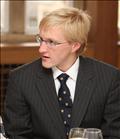
Simon Gray
- Alumni
- Canada
- 2008 MPhil Advanced Chemical Engineering
- Pembroke College
I am a native of South Africa, but was raised in Canada and the United States. My interests in biology, chemistry, and engineering led me to the University of Maryland, Baltimore County, where I earned a bachelor of science in Chemical Engineering with a focus on Biochemical Engineering. Since completing the MPhil in Advanced Chemical Engineering at Cambridge, I have continued my education at the Yale University School of Medicine where I am pursuing an MD/PhD in the Medical Scientist Training Program. I hope to translate my medical training into a research career that applies my engineering skills to clinically relevant problems.
Jennifer Grayson
- Alumni
- United States
- 2011 MPhil Asian & Middle Eastern Studies
- Selwyn College
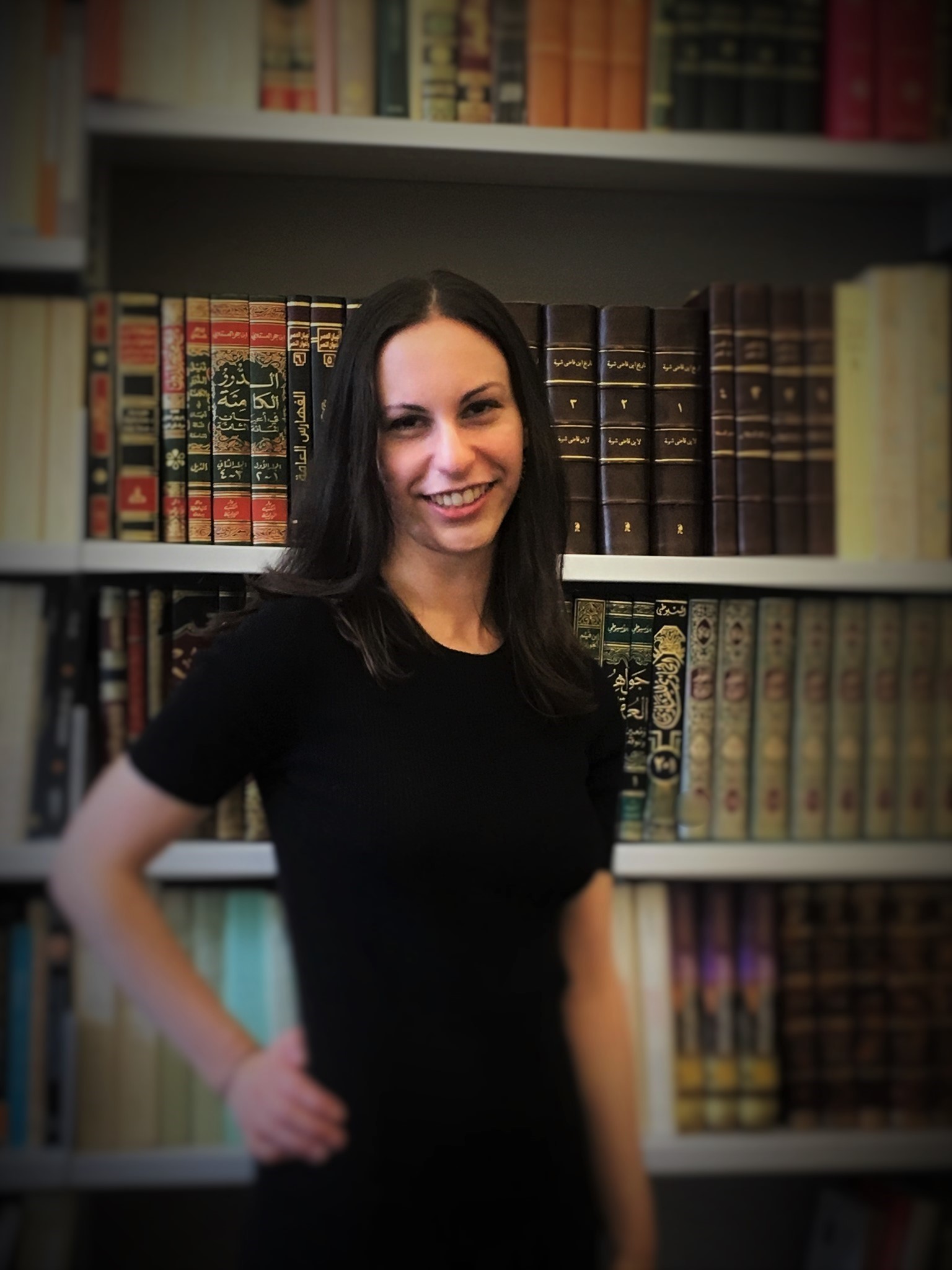
Jennifer Grayson
- Alumni
- United States
- 2011 MPhil Asian & Middle Eastern Studies
- Selwyn College
Daniel Greco
- Alumni
- United States
- 2006 MPhil Philosophy
- Darwin College

Daniel Greco
- Alumni
- United States
- 2006 MPhil Philosophy
- Darwin College








